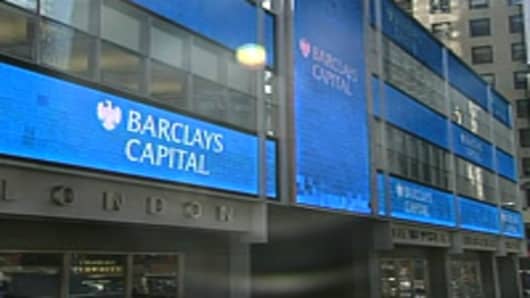Free and competitive markets have lifted more people out of poverty than any other economic system in history and, yet, the image of capitalism is badly tarnished. While there are countless well-managed and responsible businesses, we have also witnessed too many instances of companies acting in ways that are corrupt or short-sighted, or both, and harming ordinary people in the process.
The Barclays mess is yet another blow to the public's confidence in the integrity and competence of business. And the scandal will continue to widen as more firms are implicated and investigated. Regardless of whether regulators are also culpable in the rate manipulation, too many people will look at the situation and once again conclude that business is a rigged game.
Public excoriation of a CEO, clawback of bonuses, dismissal, or even jail-time for senior executives are all appropriate reactions. But they are not enough. We must finally draw the curtain on what remains one of the least transparent and accountable institutions in the world today — the board of directors. While Sarbanes-Oxley increased the liabilities board members' may face, board members are rarely held accountable for a company's failures and most shareholders know very little about how a board room actually operates.
Enron, WorldCom, , General Motors, Chrysler, MFGlobal, Bear Stearns, , Research In Motion, Hewlett-Packard, Barclays ... What do all these names (and others I haven't listed) have in common? Not all engaged in fraud. Not all were involved in scandal. Not all required a bailout or faced financial ruin. And yet in each and every case, as the truth about these companies' financial condition, strategic choices, or lapse in ethics became clear, the obvious question that must be asked is: Where was the board?
Financial distress, bankruptcy protection, massive product-launch problems, scandal, corruption, strategic blunders, flawed personnel decisions — none of these things happen overnight. When a problem finally comes to light in the marketplace, it may seem sudden and unexpected, but the crisis has been building in the company for some time. The decisions of a board impact literally millions of people. When a board fails to act to avert a crisis, the consequences can be devastating.
I have chaired boards of directors and I have served on many. Boards that perform poorly have several common characteristics:
1. Too many board members have served for too long. In many of the companies cited above, it is remarkable to see how long a board has been intact when a company faces ruin.
2. Board members naturally value their relationships with fellow board members and management, as well as the perks that come along with their position. There is nothing inherently wrong with this, but sometimes this camaraderie can overwhelm responsibility. Then, too many board members will go along to get along.
3. Some voices dominate proceedings, while others say nothing most of the time. Cliques form. Personal rivalries, ambitions, likes, and dislikes can drive outcomes in inappropriate ways. Boards are, after all, collections of people, so it shouldn't be surprising that all the politics that can infect any group can infect a board, as well.
4. Some board members don't understand the business.
5. Board agendas get packed with too many items. Too much time is spent listening to presentations instead of asking the tough questions. Too little time is allowed for thoughtful consideration of strategy and succession, which are the most important conversations a board can have.
I believe several things are needed to equip boards to better perform for shareholders and to ensure that a board is held accountable for the performance of the business.
1. Boards should engage in annual self-assessments, facilitated by outside, objective parties. How do we spend our time? Are we asking the right questions? Are some board members too domineering? Are all board members competent? Do all board members pull their weight? Very few boards engage in this rigorous self-examination and most board members don't like it and resist doing it. But a board is a team of people, and like most other teams, a Board needs help to perform at required levels.
2. Boards should institute term limits. All board members should be re-elected annually. Boards need continuity and expertise to maintain a long-term perspective. At the same time, boards need fresh eyes, new blood, diverse opinions.
3. Boards should be transparent about how board members are recruited, evaluated, and selected. These processes should be rigorous and objective. Board selection shouldn't be overly influenced by who knows whom.
4. Boards should be open about how they make decisions and how they spend their time. I am not suggesting that boards' reveal competitive information and it is vital that Board members not leak confidential discussions or decisions. However, a board can and should be more transparent about its processes and the ways it operates. A board should hold itself accountable for sound stewardship of the business.
5. Shareholders should ask lots of questions about all of the above. Most analyst and business commentary is about the operational, financial and strategic aspects of the company. More attention needs to be paid to who the board is, what do they do and how do they do it.
Fundamentally, boards must become transparent about how they govern and shareholders must hold them accountable for their governance. Given the impact a boards' decision-making has on customers, employees, communities and shareholders, it is time to shine a bright light on what goes on in the board room.
—By CNBC Contributor Carly Fiorina
_________________________ Ms. Fiorina is the former Chairman and CEO of Hewlett-Packard and a contributor to CNBC. She has served on the Boards of Cisco, Kellogg, Merck and Taiwan National Semi-Conductor. She is currently Chairman of Good 360, the largest on-line product donation marketplace in the world.


